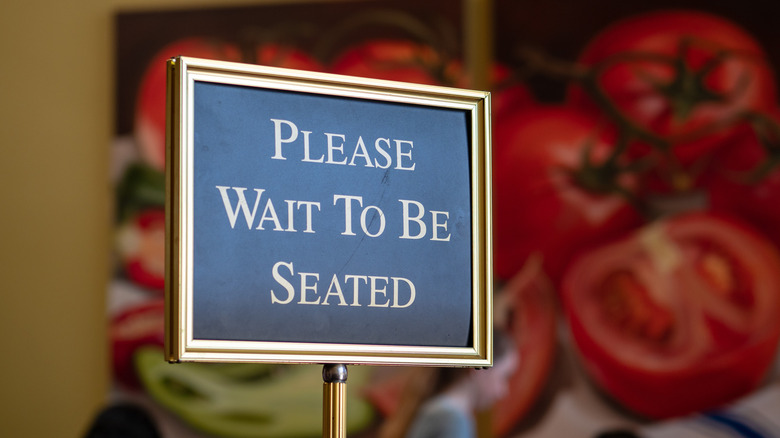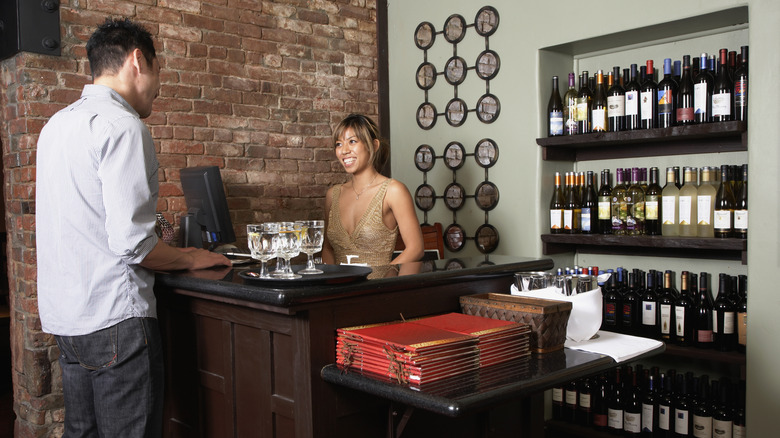So, What Does A Restaurant Host Actually Do?
At almost any sit-down restaurant, you'll be greeted at the front door by a cheery and welcoming host. If you have a reservation, they'll check you in and lead you through the labyrinthine path to your table. An especially efficient host may pull out your chair, unfold your napkin, and hand you menus, perhaps even suggesting a chef's special, before handing you over to the wait staff. Other than charm, you might think a restaurant host has a limited skill set because even in the busiest fine dining restaurant, it seems to be a pretty cushy job. But it takes a lot more than social skills to be a restaurant host, and their wide-ranging responsibilities may surprise you.
Most restaurants use an online reservation system and it's up to the host to organize the reservations. This means contacting people who haven't shown up or rescheduling those who are running late without provoking the ire of patrons waiting to be seated or are on the wait list. Inevitably, some patrons lose their temper when they see empty tables, unaware they're reserved, and the host needs to exercise enormous patience under the stress of keeping everyone feeling respected and equally important. But a host's duties extend beyond the front-of-house in ways that aren't so apparent. According to hosts who have posted on Reddit, they may also be responsible for busing tables when short-staffed, emptying trash, cleaning high chairs and booster seats, and even restocking and cleaning the bathrooms.
A restaurant host doesn't earn as much as you think
On particularly hectic nights — in a mirror image of the chaos depicted on "The Bear" — the restaurant host often helps plate food in the kitchen and assists servers with beverage refills, salads, and desserts. When the patrons leave, the host's work still isn't done, and they will sweep up and prepare for the next night's service.
According to the U.S. Bureau of Labor Statistics, a host earns an estimated mean wage of $14.78 per hour or $30,750 annually. The estimated averages were made from data collected from restaurants, lounges, and coffee shops across the U.S., and hosts who work in some cities — for example, New York and Los Angeles — earned substantially more than those who worked in other cities like Houston, Dallas, and Atlanta.
For all the extra duties that a host takes on, they don't always get tipped. How front-of-house employees are tipped has a controversial history, but it's more likely that the host gets a percentage of the tips for assisting with takeout orders. Generally, restaurant employees are paid tips in a tipping-out system, in which percentages of collected tips are distributed. Servers get the highest percentage of tips, followed by bartenders, bussers, and food runners, with the host and sometimes the kitchen staff, receiving the least. Considering the disparity between the hourly wages of a server and host, it makes sense, but nonetheless, the host certainly works hard for the money.

